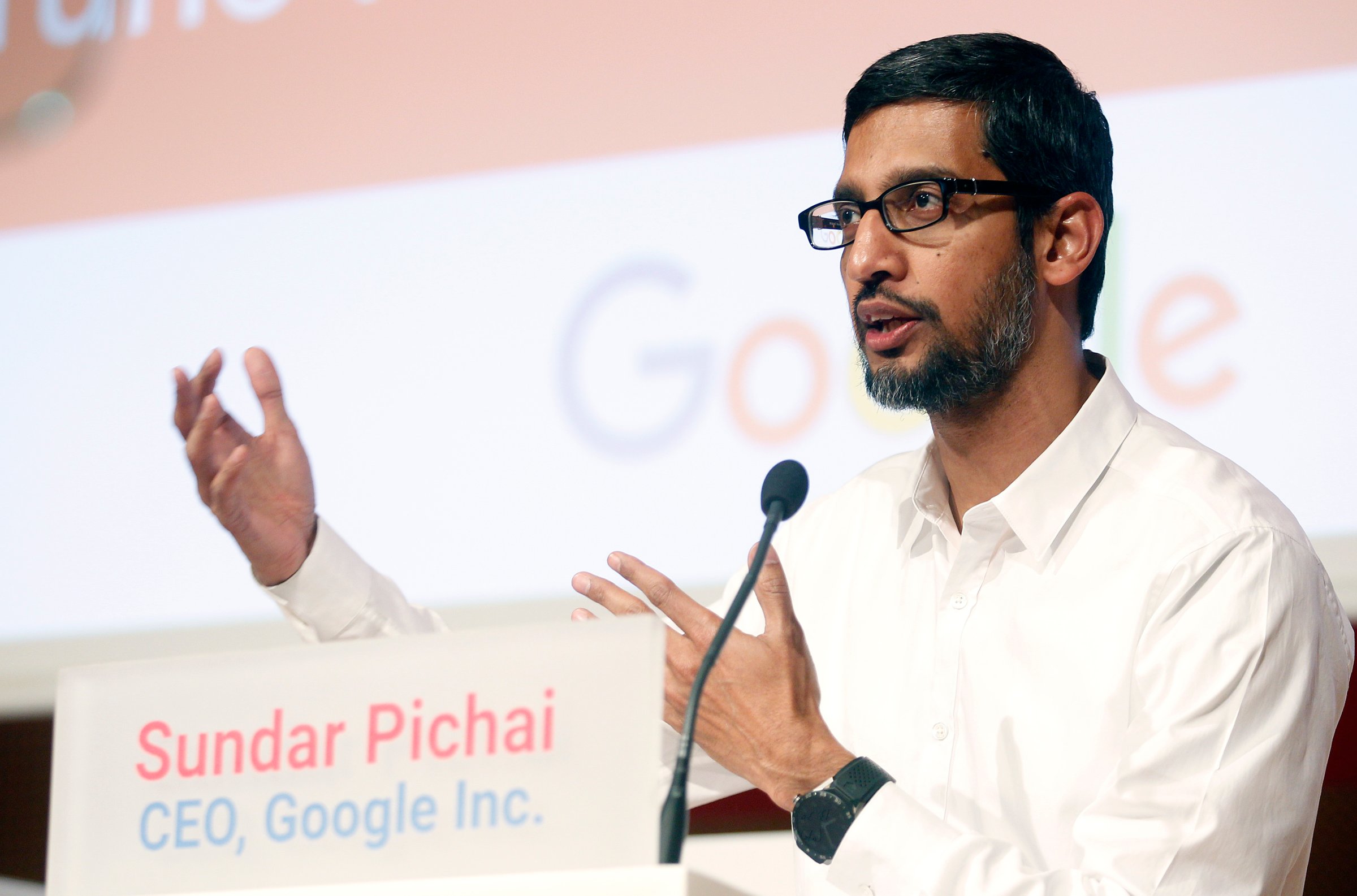
Google’s fans, investors and developers alike will be watching the Mountain View, Calif. company closely this week as it holds its largest event of the year: Its annual I/O conference.
While I/O is primarily aimed at programmers, Google usually takes the opportunity to make big announcements about its major products and projects. This is also the first I/O since former product chief Sundar Pichai was made the company’s CEO in a major restructuring last year.
Here’s a look at some of the news we’re expecting to see when Google kicks off the conference on May 18. The highlight of the event will be Wednesday’s keynote, set for 10 a.m. PT/1 p.m. ET. You can see a full schedule here.
Virtual reality
Google surprised I/O attendees in 2014 when it launched Google Cardboard, its inexpensive, smartphone-powered virtual reality viewer. This year, the company is said to be launching a new version of Cardboard with improved sensors, lenses, and a sturdier plastic casing, according to The Financial Times and The Wall Street Journal. This new headset would likely be more akin to Samsung’s Gear VR headset, a $99 viewer compatible with most Samsung smartphones, than Google’s current Cardboard headsets.
Meanwhile, Google is said to be developing a separate virtual reality gadget that would not require a smartphone to power the experience. It may include a screen, processors, and cameras, but it wouldn’t need to be tethered to a phone or computer to work, according to The Wall Street Journal. That initial report wasn’t clear on whether or not this standalone viewer would launch at Google I/O. But entrepreneur and former journalist Peter Rojas recently said it would indeed make its debut at the conference.
Google is also said to be building a new version of its Android software specifically for virtual reality. If Google does unveil new virtual reality devices this week, there’s a strong chance we’ll learn about this new software as well.
Pricing will be especially important for Google’s standalone VR gadget. Although Google hasn’t confirmed any upcoming VR plans yet, the headset would likely be pricier than the Cardboard but less expensive than the $600 Oculus Rift and $800 HTC Vive. If that’s the case, Google will have to prove that this middle ground will deliver a strong enough experience to sway buyers from opting for a cheaper headset.
More details on the next version of Android
The focal point of Google I/O is typically what’s next for Android, the company’s mobile operating system. This year is different, however, because Google already unleashed a preview version of the update in March. Even though the Android N preview has given us a taste of what to expect, there are still unanswered questions. (Full name and release date, for starters.) Google may address these uncertainties and share more details about Android N’s features at I/O.
More integration between Android and Chrome OS
Google offers two separate operating systems: Android for smartphones, tablets, and wearables, and Chrome OS for Chromebook laptops. But the two are becoming increasingly intertwined. For example, Android notifications can appear on your Chromebook, and browser tabs from Chrome appear alongside recent apps in Android.
Google could be exploring ways to tie these platforms even closer together, possibly merging them into one operating system. Eric Schmidt, the executive chairman of Google parent company Alphabet, hinted as much last year. A report from The Wall Street Journal last November also said Google plans to combine the two ecosystems. If this is true, there’s a chance we’ll hear about it at I/O.
Project Tango updates
Google is expected to demonstrate some of the progress it has made with its Tango technology at Google I/O, which is capable of mapping real-world environments in three dimensions. Lenovo will showcase the first smartphone to include Project Tango tech at its own conference in June. But a report from Bloomberg suggests Tango will receive attention during I/O as well.
Google is hoping Tango, which uses cameras and sensors in electronic devices to map spaces in 3D and show the results on screen, will help developers create more immersive VR apps.
Advancements in artificial intelligence
Google CEO Sundar Pichai emphasized how important artificial intelligence and machine learning will be to the company’s future products in a letter last month. It seems likely that the company will showcase at least a few of its latest A.I. achievements during I/O. This could include enhancements in voice search and its Google Now virtual assistant, but we won’t know for sure until the keynote. Google is also said to be working on a voice-enabled device similar to the Amazon Echo, but it’s unclear whether or not this will be shown at I/O, according to Recode.
More Must-Reads from TIME
- Cybersecurity Experts Are Sounding the Alarm on DOGE
- Meet the 2025 Women of the Year
- The Harsh Truth About Disability Inclusion
- Why Do More Young Adults Have Cancer?
- Colman Domingo Leads With Radical Love
- How to Get Better at Doing Things Alone
- Michelle Zauner Stares Down the Darkness
Contact us at letters@time.com